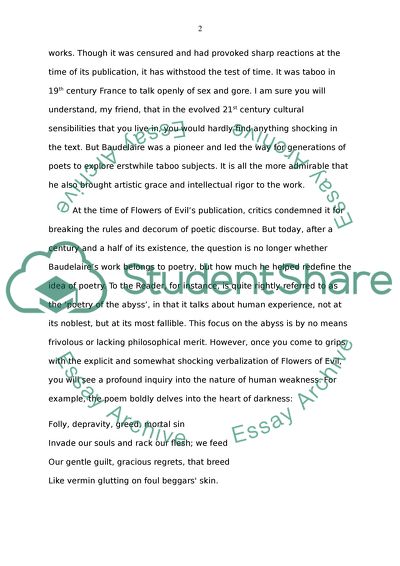Cite this document
(“Write a letter convincing a friend or relative why they should read, Essay”, n.d.)
Retrieved de https://studentshare.org/literature/1636816-write-a-letter-convincing-a-friend-or-relative-why-they-should-read-to-the-reader-by-charles-baudelaire
Retrieved de https://studentshare.org/literature/1636816-write-a-letter-convincing-a-friend-or-relative-why-they-should-read-to-the-reader-by-charles-baudelaire
(Write a Letter Convincing a Friend or Relative Why They Should Read, Essay)
https://studentshare.org/literature/1636816-write-a-letter-convincing-a-friend-or-relative-why-they-should-read-to-the-reader-by-charles-baudelaire.
https://studentshare.org/literature/1636816-write-a-letter-convincing-a-friend-or-relative-why-they-should-read-to-the-reader-by-charles-baudelaire.
“Write a Letter Convincing a Friend or Relative Why They Should Read, Essay”, n.d. https://studentshare.org/literature/1636816-write-a-letter-convincing-a-friend-or-relative-why-they-should-read-to-the-reader-by-charles-baudelaire.


